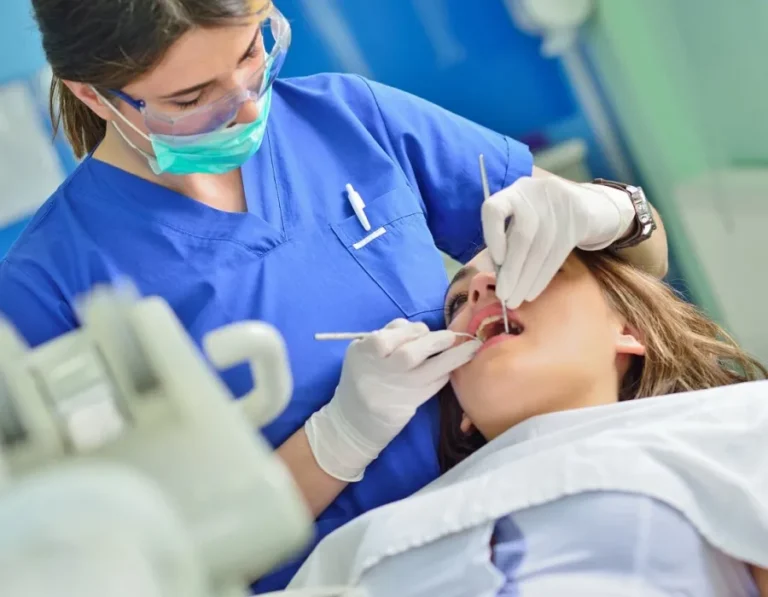Obstructive sleep apnea is a common yet serious sleep disorder that affects millions of people worldwide. It occurs when the upper airway repeatedly collapses during sleep, causing breathing interruptions that lead to poor sleep quality, reduced oxygen levels, and daytime fatigue. Many individuals struggle for years without proper diagnosis, unaware that effective and proven solutions exist. Finding a The latest treatment for apnea can significantly improve sleep, health, and overall well-being. A strong approach involves understanding available therapies and choosing the most suitable one based on the severity of the condition and personal lifestyle.
Understanding Obstructive Sleep Apnea and Its Impact
Obstructive sleep apnea results from a physical blockage of the airway. When throat muscles relax excessively during sleep, the airway narrows, preventing airflow. This leads to loud snoring, choking sensations, and repeated awakenings throughout the night. Over time, untreated sleep apnea contributes to serious health issues, including high blood pressure, heart disease, diabetes, and cognitive decline. People often notice symptoms such as morning headaches, extreme daytime tiredness, irritability, and difficulty concentrating. For many, the condition also disrupts relationships due to loud snoring and restless nights. Choosing a Definitive treatment for obstructive sleep apnea helps restore consistent breathing and improves the quality of sleep cycles, reducing long-term risks.
Continuous Positive Airway Pressure as a Highly Effective Solution
Continuous Positive Airway Pressure therapy is one of the most widely recommended treatments. A CPAP machine uses mild air pressure delivered through a mask to keep the airway open throughout the night. This prevents interruptions in breathing and ensures a stable oxygen supply. Many patients experience significant improvement within the first few nights of using CPAP. Although the device may seem uncomfortable initially, modern machines are quieter, adjustable, and designed to maximize comfort. CPAP is considered a Definitive treatment for obstructive sleep apnea for moderate to severe cases due to its proven track record in reducing symptoms and preventing complications. Consistent use can dramatically improve daytime energy levels, cognitive function, and cardiovascular health.
Oral Appliance Therapy for a Comfortable Alternative
For individuals who cannot tolerate CPAP therapy, oral appliances offer a highly practical solution. These custom-designed devices fit inside the mouth and gently reposition the lower jaw or tongue to maintain an open airway during sleep. Oral appliance therapy is often recommended for mild to moderate sleep apnea and for those who prefer a simpler, more comfortable option. These devices are portable, easy to clean, and do not require electricity, making them convenient for travel. Dental specialists trained in sleep medicine create personalized appliances to ensure a proper fit. While oral appliances may not be suitable for everyone, they remain an effective choice for many seeking a Definitive treatment for obstructive sleep apnea with greater comfort and ease.
Surgical Options for Long-Term Airway Improvement
Surgery may be recommended when other treatments fail or when there is a clear structural issue causing the airway obstruction. Several surgical procedures exist, each targeting different parts of the airway. Uvulopalatopharyngoplasty involves removing excess tissue from the throat, while jaw advancement surgeries reposition the facial bones to widen the airway. In some cases, nasal surgeries are performed to correct breathing difficulties. Although surgery carries risks and recovery time, it can offer lasting results for select patients. When combined with lifestyle adjustments, surgical intervention can be a Definitive treatment for obstructive sleep apnea, especially when anatomical abnormalities are significant contributors.
Hypoglossal Nerve Stimulation as an Innovative Therapy
Hypoglossal nerve stimulation is an advanced treatment gaining popularity. This therapy involves a small implanted device that stimulates the nerve controlling tongue movement. When activated during sleep, it helps keep the tongue from collapsing backward and blocking the airway. The device monitors breathing patterns and adjusts stimulation automatically. This solution is ideal for individuals who cannot tolerate CPAP and do not wish to undergo major surgery. As a modern approach, it offers consistent results and improved sleep quality. Many patients appreciate the minimal maintenance and natural breathing experience it provides, making it a strong candidate for a Definitive treatment for obstructive sleep apnea.
Lifestyle Modifications to Support Treatment Success
Lifestyle changes play a crucial role in enhancing the effectiveness of medical treatments. Maintaining a healthy weight can significantly reduce airway obstruction, as excess tissue around the neck contributes to sleep apnea. Regular exercise improves breathing strength and overall cardiovascular health. Avoiding alcohol and sedatives before bedtime helps prevent excessive muscle relaxation in the throat. Side-sleeping instead of lying on the back can also reduce airway collapse. While lifestyle changes alone may not offer a complete cure, they greatly increase the success rate of any Definitive treatment for obstructive sleep apnea and support long-term health improvements.
Choosing the Right Treatment for Lasting Relief
Selecting the most suitable treatment requires a thorough evaluation by a sleep specialist. Diagnostic tests, such as polysomnography, help determine the severity of the condition and guide treatment recommendations. Not every therapy works for every individual, so personalized care is essential. Some may respond best to CPAP, while others find oral appliances or surgical procedures more effective. Modern advancements, combined with clinical expertise, make it easier than ever to find a Definitive treatment for obstructive sleep apnea that aligns with personal preferences, lifestyle, and medical needs. Consistency is key, as long-term success depends on ongoing use and follow-up care.
Achieving Better Sleep Through Targeted Treatments
Effective treatment dramatically improves sleep quality, energy levels, mood, and long-term health. When breathing interruptions are eliminated, the body can restore natural sleep cycles and rejuvenate itself more efficiently. Improved oxygen flow also reduces strain on the heart and lowers the risk of chronic diseases. For those living with daytime fatigue, irritability, and disrupted nights, addressing sleep apnea becomes life-changing. With the right Definitive treatment for obstructive sleep apnea, individuals can regain restful sleep and enjoy a healthier, more productive life.



